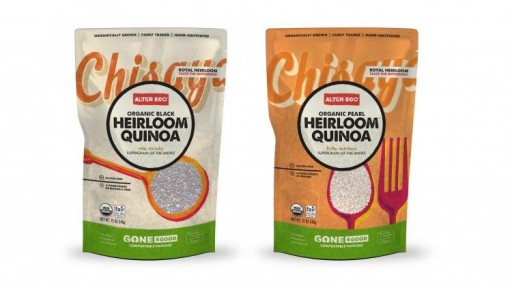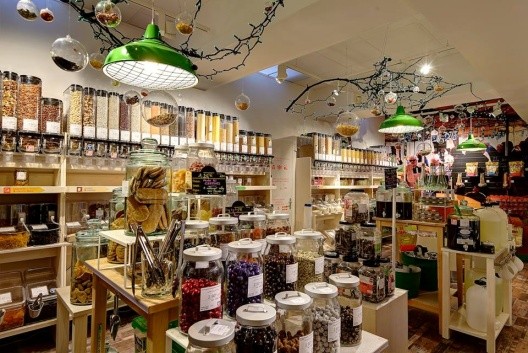By Miriam Candelas, IYNF e-volunteer
On average each person in Europe annually produces half a ton of household waste, most of it coming from food packaging and only 40% of which is reused or recycled. There has also been an increase of unnecessary packaging in the past years. For instance, it became normal to find in supermarkets a single grapefruit wrapped in plastic foil! This raises many pertinent questions like: How can we deal with this problem? Is that inevitable? Are governments taking measures?
One of the most important aspects of packaging is that it helps to preserve the quality and freshness of the products. Consumers want products with a maximal shelf life while retailers want to prolong the time of selling. To answer these demands, packaging industries are developing more intelligent packaging, for example providing re-closable trays or even creating optimized meat packaging through a dual-compartment vacuum that allows the maturing of meat products in the retail shelves.
Until now, there are no alternatives to unrecyclable plastic pouches, many of which end up in landfills. However, the French company Alter Eco, has recently launched the first quinoa containing pouch made out of compostable materials! It keeps similar characteristics as the plastic ones but it disintegrates in about 3 to 6 months. Specifically, it is made out of birch and eucalyptus wood pulp and non-GMO corn starch. This foretells a revolutionary advance in packaging and opens a more hopeful future.
Day by day shop in Paris
We understand that some products will probably always need a package, however, the next question is – is it always necessary? In our society people have less and less time to cook, shop, etc. Many people buy groceries only once in a week and prefer to go to a big supermarket and buy all at once. Furthermore, they frequently choose prepared products, which in turn, increases the packaging waste.
This is not just a governmental or industrial problem, it concerns the society as well. Each of us can try to reduce packaging. People can take advantage of a weekly market that usually exist in all cities for buying fresh and healthier vegetables and fruits. Moreover, you will find more bio products and buy directly from the producer. In France, where I live since 2012, people are more and more concerned about packaging and bio food. In this way, every day you can find a lot of open air markets where producers directly sell their products. Something very interesting that has recently happened in Paris is the opening of the first packaging-free food store called Day by Day. They sell in bulk a large variety of products such as different kinds of paste, rice or cereals, but also cleaning products. The concept is easy, people came with their own containers and fill as much as they need. It has been quite welcomed by the customers, and they are spreading out in other regions in France.
And how are governments facing these issues? The European Union’s objectives are improved waste management, in where they are encouraging recycling with incentives to change consumer behavior. An example of this is the existence of a Packaging and Packaging Waste Directive, whose last revision was in 2015 regarding the consumption of lightweight plastic bags. The USA is also trying to diminish packaging.

Source: http://www.packagingdigest.com/sustainable-packaging/quinoa-repackaged-compostable-pouches1602
There are several annual events bringing food and packaging industries together with government representatives, to deal with these issues. Apart from these objectives, there are no specific laws dealing with packaging.
Lifestyles are always changing, and companies are always adapting to their consumer’s demands. So at the end, the power, but also the responsibility is in the society. Once people realize that most packaging is not recyclable and ends up in landfills, they would probably want to be part of the solution.
It is up to us to let the government notice that we want changes and solutions related to this problem.

